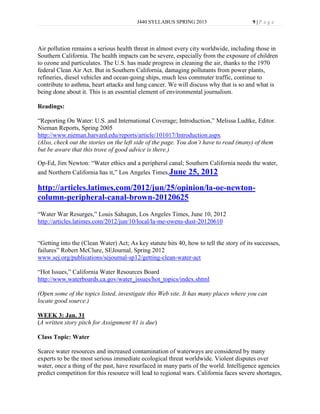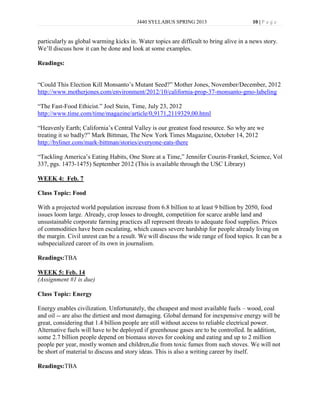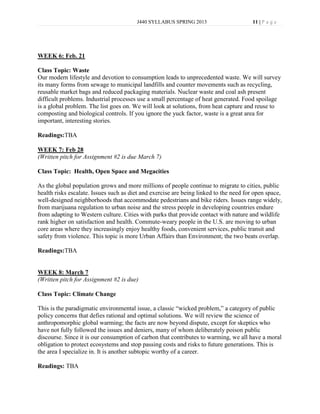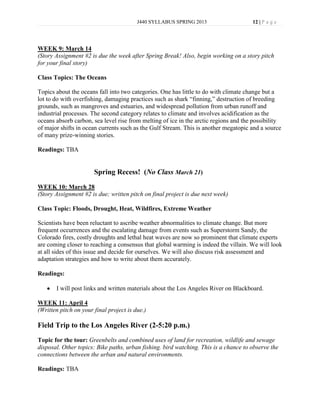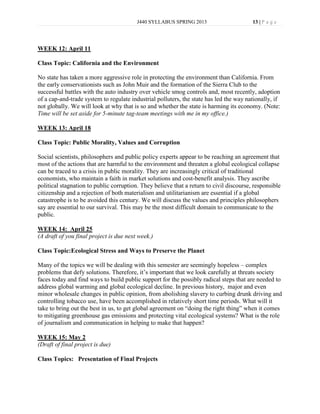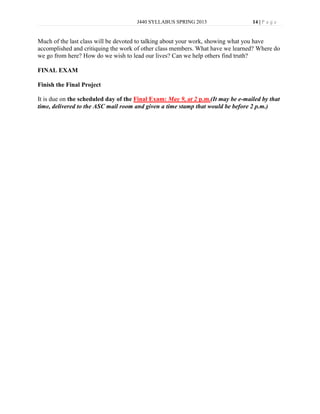This document is the syllabus for a journalism course on environmental journalism taught at USC in spring 2013. The key points are:
1) The course aims to help students strengthen their skills in determining trustworthy sources on environmental issues, understanding important ecological topics, and employing journalism skills to tell impactful stories across multiple platforms.
2) Students will analyze and discuss environmental news coverage, with a focus on issues in Southern California and the Los Angeles River watershed. Assignments include individual news stories, a multimedia team project, and an in-depth final project.
3) Regular attendance and meeting deadlines are required. Students will present news analyses and contribute to an online discussion board. Readings, videos
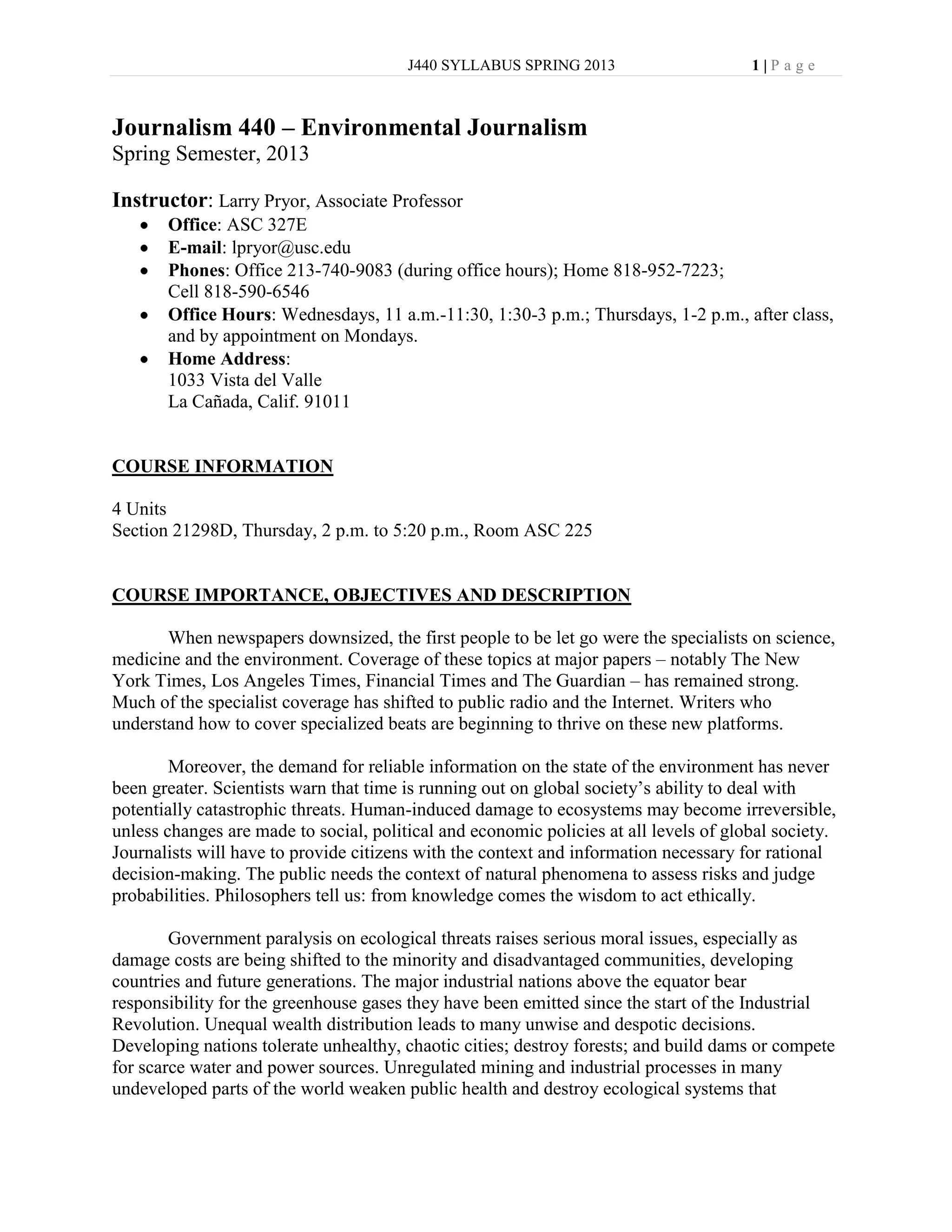
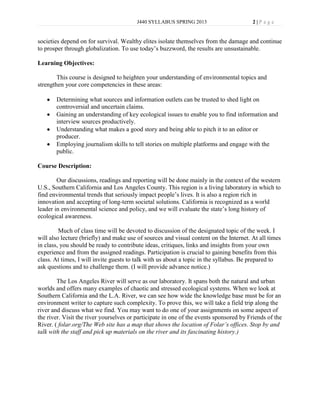
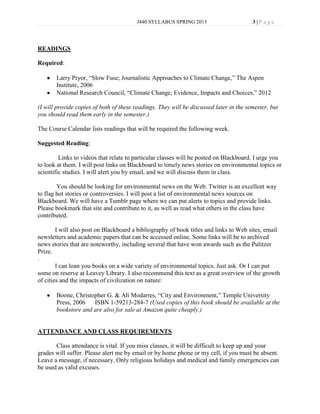
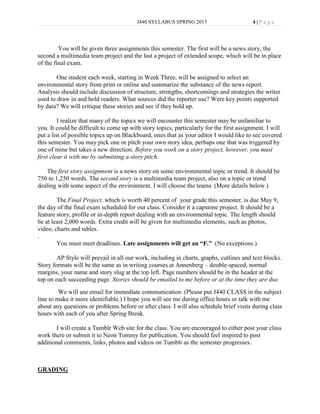
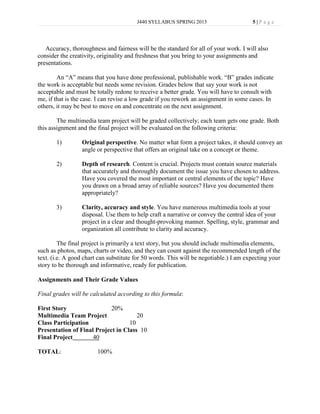
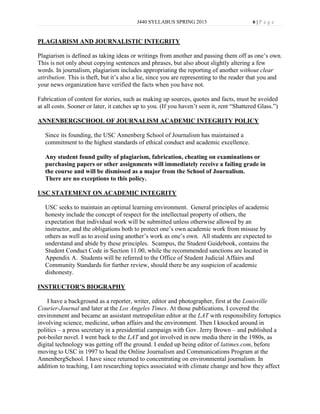
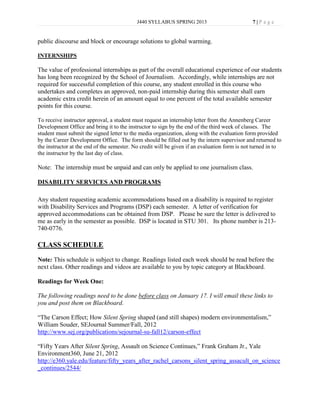
![J440 SYLLABUS SPRING 2013 8|P age
“The Wild Life of Silent Spring; How Rachel Carson gave voice to the modern environmental
movement and ignited its opposition,” Eliza Griswold, The New York Times Magazine,
September 23, 2012
http://www.nytimes.com/2012/09/23/magazine/how-silent-spring-ignited-the-environmental-
movement.html?pagewanted=all&_r=0
WEEK 1: Jan. 17
Class Topic: Introduction to Environmental Journalism
How much do you already know about the environment? Let’s find a starting point appropriate
to the class. We will go over the syllabus and talk about the semester ahead. I will describe the
environment beat and its special problems. Class discussion will focus on Rachel Carson and
what has taken place in the 50 years since the publication of Silent Spring.
Readings:
“What's at Risk from Industry's Full-Scale Assault on the EPA and the Clean Air Act?Public
Health Protections Under Attack,” Natural Resources Defense Council
http://www.nrdc.org/air/cleanairact/default2.asp
U.S. Environmental Protection Agency: Air Quality Planning and Standards
http://www.epa.gov/oaqps001/cleanair.html
California Air Resources Board; Reducing Air Pollution - ARB Programs
http://www.arb.ca.gov/html/programs.htm
(Read the Major Program Areas, open up some of the Related Email Lists and look at some of
the Contact lists. This is a great place to locate sources.)
“How Los Angeles Began to Put its Smoggy Days Behind,” Jeremy Rosenberg,
KCET, February 13, 2012
http://www.kcet.org/socal/departures/landofsunshine/laws-that-shaped-la/how-los-angeles-
began-to-put-its-smoggy-days-behind.html
WEEK 2: Jan. 24
(A written story pitch for Assignment #1 is due next week)
[Note: After today’s class, an event, ClimatePalooza, sponsored by Annenberg’s Earth Sciences
Communication Initiative, in partnership with the Jet Propulsion Laboratory, will be held at our
school. It will have a unique format, and you will be able to hear from and talk with scientists
about environmental issues. The event starts at 5:30 in the auditorium. Tell your friends!]
Class Topic: Air](https://image.slidesharecdn.com/environmentaljournalism-130225102840-phpapp01/85/Environmental-Journalism-8-320.jpg)
